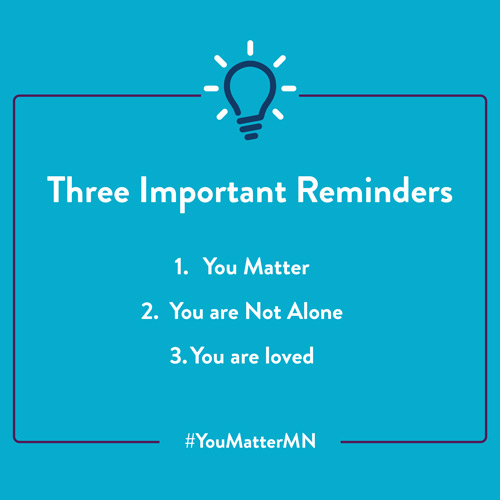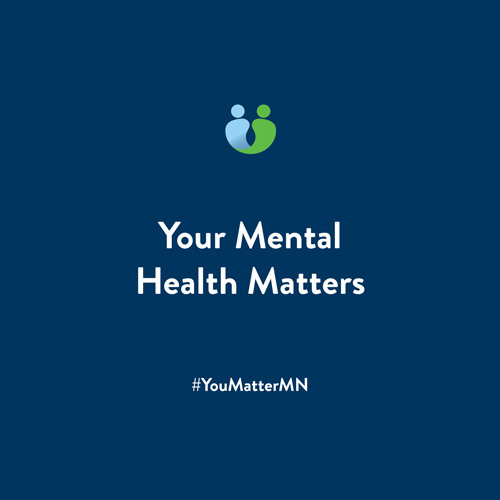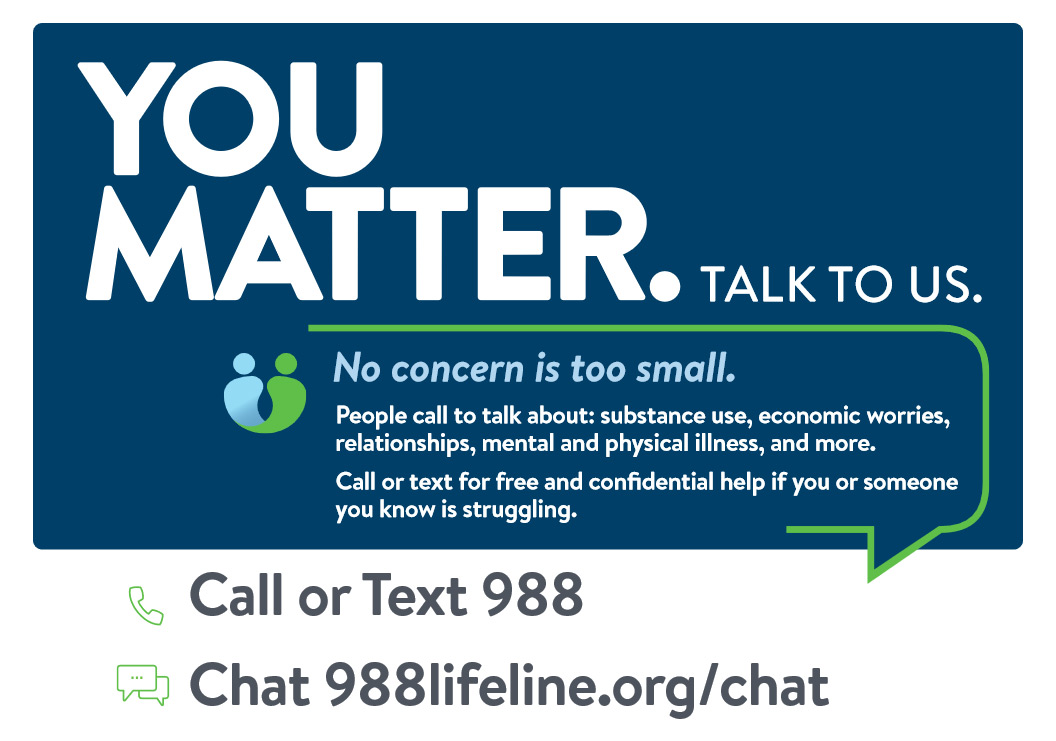Make Connections to Help Prevent Suicides
To help raise awareness of suicide prevention, the Minnesota Department of Health created a four-week Connection Challenge. In my last blog, I discussed Connection for Ourselves and Connecting With Loved Ones.
Week 3 – Connecting With Community
 While we trust our closest friends, family, and loved ones with our secrets, hopes, and dreams, the broader community where we live, work and play also contributes to our feeling of connection. Communities can provide us with:
While we trust our closest friends, family, and loved ones with our secrets, hopes, and dreams, the broader community where we live, work and play also contributes to our feeling of connection. Communities can provide us with:
- An emotional connection with people who share our history, our sense of place or similar experiences
- A feeling of belonging
- A sense of support
- A way to have our voice heard and valued by a wider group of people
Surrounding people and families with supportive neighborhoods, businesses, faith communities, schools, and services is a critical way to support everyone. We encourage you to find ways to engage with your own community by volunteering or participating in community events. If you belong to a community program or organization, we encourage you to think about how you can help reduce social isolation for your larger community members by offering opportunities to increase an individual’s sense of belonging.
- Create opportunities and spaces for social connection.
- Support connection through offering community-based education, skill-building classes, encouraging attendance at social events and volunteerism.
- Actively seek and build partnerships with a variety of community institutions (schools, health organizations, workplaces). This can create a culture of connection with the broader community and support those who may be struggling with isolation, their mental health or having thoughts of suicide.
- Know what supports are available for people who need it and provide resources and support to promote mental health and well-being and prevent suicide.
- Expand conversations on the importance of social connection where we live, work, learn and play.
Week 4 – Connection to Hope and Healing
 When your mental health is off, it is important to find the help that is right for you. Hope and healing can be found in many places and in many forms to give you the type of support that you need.
When your mental health is off, it is important to find the help that is right for you. Hope and healing can be found in many places and in many forms to give you the type of support that you need.
- People you already have connections with are often a good place to start. This could be your friends and family, your primary care doctor, spiritual advisor or someone else who you can trust.
- Sometimes it is nice to know that you are not alone in your struggle. Having peer support can be a great way to connect with others who may have similar experiences as you. This could be calling one of Minnesota’s warm lines or attending a support group. MN Warm Line: Call 1-844-739-0369 from 5 p.m. to 9 a.m. seven days a week.
Professional help also can make a big difference, but sometimes it is hard to know where to start as there are many different types of mental health professionals.
- Ask for referrals from your friends, family, primary care physician, faith leader or other people you trust.
- Contact 211, 988 or your local mental health center to understand what mental health resources are available in your community. You also can try Fast Tracker.
- Another starting point is to call the number on the back of your insurance card. They can help you identify what providers are a part of your plan.
People finding hope and healing is happening every single day. Exploring stories of how others have found hope and healing can be a powerful way to learn how others have found ways to cope with life’s struggles.
Please visit Suicide Prevention for more resources related to mental health and suicide prevention. For additional support to build personal resiliency, check out the Bounce Back Project.
If you, or someone you know, are experiencing thoughts of suicide, please call or text the Suicide & Crisis Lifeline at 988.

